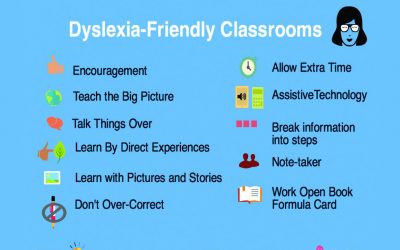Colleges and universities are in crisis, as they hastily cancelled in-person classes and the pandemic drags on. They face huge budget losses with refunds for student fees for housing and food, plus the prospect of students choosing not to enroll for the fall semester...
Covid College: What About Fall Semester? [Premium]
The outlook for the fall semester remains unpredictable. What does it mean for this community? The situation about the pandemic remains very fluid as does the state of public and private schools at all levels, therefore complex and individualized decisions are being made at homes all across the country. Many colleges and universities, secondary schools, and households are experiencing considerable financial stress leading many to decide to take a gap year or semester, or scale back on educational plans. On the one hand, some college counselors have suggested aiming high for their college choices because college entrance exams are waived and students may be more likely to get into their ‘reach’ choices because of lots of other students choosing to stay closer to home or […]
Math Education During Pandemic
With many states ordering schools to remain shut for the remainder of the school year AND the prospect fall quarter may also be waived, there are certainly going to be gaps in math education. Parents and teachers must try to make as intelligent decisions as they can...
Project-Based Learning for Dyslexic Students [Premium]
Related to the issue of digital portfolios is project-based learning. On the opposite page, there are quick reviews between learning through projects and true project-based learning or PBL. With PBL, the students assume a central role in the direction of the project and the end goal is to publish the project to the real world and not fill in checklists and answer to questions designed by a teacher. As it turns out, project-based learning is often a great fit for developing dyslexic MIND strengths (Material Reasoning, Interconnected Reasoning, Narrative Reasoning, Dynamic Reasoning) and as Kyle mentioned is a good fit for deep big picture thinkers who have the potential to ask good questions and see problems from multiple perspectives. Project-based learning also puts the focus […]
Sneaky Ways to Help with the Dyslexia-Related Long Word Challenges [Premium]
It’s not your imagination – it’s much harder for most children and adults with dyslexia to learn long words – and it has nothing to do with intelligence. The sneaky reason is that for most dyslexic people, learning a random sequence of sounds puts more demands on those phonological processing pathways in the brain that once made it hard to learn to read. It’s good to be aware of this difficulty and also know that it has no relationship to things like creative insight or problem solving ability, which might be sky high. It does mean that for certain subjects – like science vocabulary, geography place names, long people and place names in literature, and foreign languages, extra care and time may be necessary to […]
Learning Doubles to Boost Math Facts Fluency
Learning doubles math facts can help with number flexibility. After learning how to count and "count on", doubles may be the next skill to learn. Origo Education has a nice post about how to introduce and practice doubling facts with students. First, students look for...
Reversals and How to Help [Premium]
“The ability to recognize objects from various view-points has advantages in perceiving one’s environment, allowing one to identify a potential threat from many different views…(however) this trait of the object recognition system is disadvantageous for reading….” Blackburne et al., 2014 MIT When neuroscientists used neurophysiological techniques to study brain-based correlates of letter reversals, they were surprised to find how slowly children’s brains matured into the final adult pattern. Even when children were no longer writing letters backwards, their brains hadn’t matured to final “adult” pattern. Most researchers working in the area of reversals believe the letter reversal issue is related to how to recognize objects from different perspectives. We can recognize our friend if we’re standing right in front of them, to the side, at […]
Dyslexia and Math: Understanding Decimals [Premium]
WHY DECIMALS ARE HARD There are many confusing aspects to decimals that are helpful to recognize when helping students. Contrary to working with whole numbers, longer sequences of numbers are not larger than shorter ones. For instance, with whole numbers, 245 is greater than 2, but .0245 is smaller than 2. For math processes involving decimals, multiplying by a decimal number between 0 and 1 is also opposite to what one might be used to. After learning that multiplication is equal groups or repeated addition, multiplying 0.3 x 0.4 = 0.12, a number that is smaller than 0.3 or 0.4. Similarly, dividing by a decimal can result in a number that is bigger than what we started out with, which can seem even more confusing. […]
PUTTING A NAME ON IT: Dyslexia, Dysgraphia, and Dyscalculia
The school year begins and then there's a lull. The first days of excitement and change are past and now teachers are trying to figure out their students and students are trying to figure out their teachers. Now is a good time for students to talk to their teachers...
READING FLUENCY: Phrase Cueing [Premium]
Once students have made significant progress with single word decoding, reading fluency practice can be rolled into reading practice with phrase cueing. HERE is a nice review of reading fluency approaches that includes a discussion of phrased reading. Phrase scooping or cueing involved the drawing of scoops underneath groups of words that go together in parts of a phrase. Combining scooped words with choral reading or echo reading can help students get practice with both reading and listening for phrases. Intervention Central has a Phrase Cued Text Generator, but it’s so-so. It’s better to break sentences into 3-6 word phrases to increase the ease of reading. From Steve Peha, check out the example below: Of course these shorter phrases also help with reading on a […]
Chat with Jack Churchill, Winston’s Great Grandson & Co-Founder of SCANNING PENS
Jack Churchill, Winston Churchill's great grandson also graciously took time out his busy schedule to talk with us about his wonderful scanning pens that are now taking the dyslexia world by storm. Scanning Pens is also one of Dyslexic Advantage newest sponsors - so...
SENSING SHAKESPEARE: New Book of Teaching Strategies
This book has wonderful strategies and examples that will be helpful for many dyslexic actors and actresses, but also middle, high school, and college students who are tasked with reading complex texts. Listen to my interview with Petronilla here: "For me, as a...


![Covid College: What About Fall Semester? [Premium]](https://www.dyslexicadvantage.org/wp-content/uploads/2020/07/philippe-bout-93W0xn4961g-unsplash1-400x250.jpg)

![Project-Based Learning for Dyslexic Students [Premium]](https://www.dyslexicadvantage.org/wp-content/uploads/2020/05/Project-Based-learning-2-400x250.jpg)
![Sneaky Ways to Help with the Dyslexia-Related Long Word Challenges [Premium]](https://www.dyslexicadvantage.org/wp-content/uploads/2020/04/long-words.jpg)

![Reversals and How to Help [Premium]](https://www.dyslexicadvantage.org/wp-content/uploads/2020/02/reversals-400x250.png)
![Dyslexia and Math: Understanding Decimals [Premium]](https://www.dyslexicadvantage.org/wp-content/uploads/2020/02/decimals-fractions-shutterstock-400x250.jpg)

![READING FLUENCY: Phrase Cueing [Premium]](https://www.dyslexicadvantage.org/wp-content/uploads/2020/01/phrase-craze-3-400x250.jpg)















